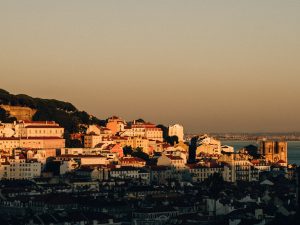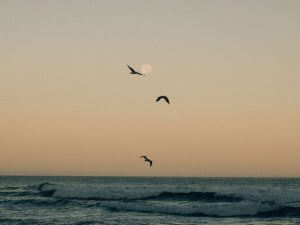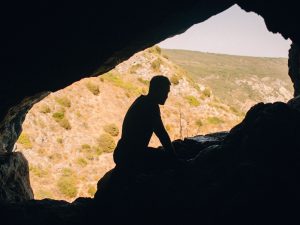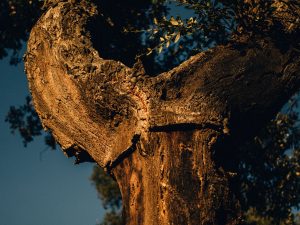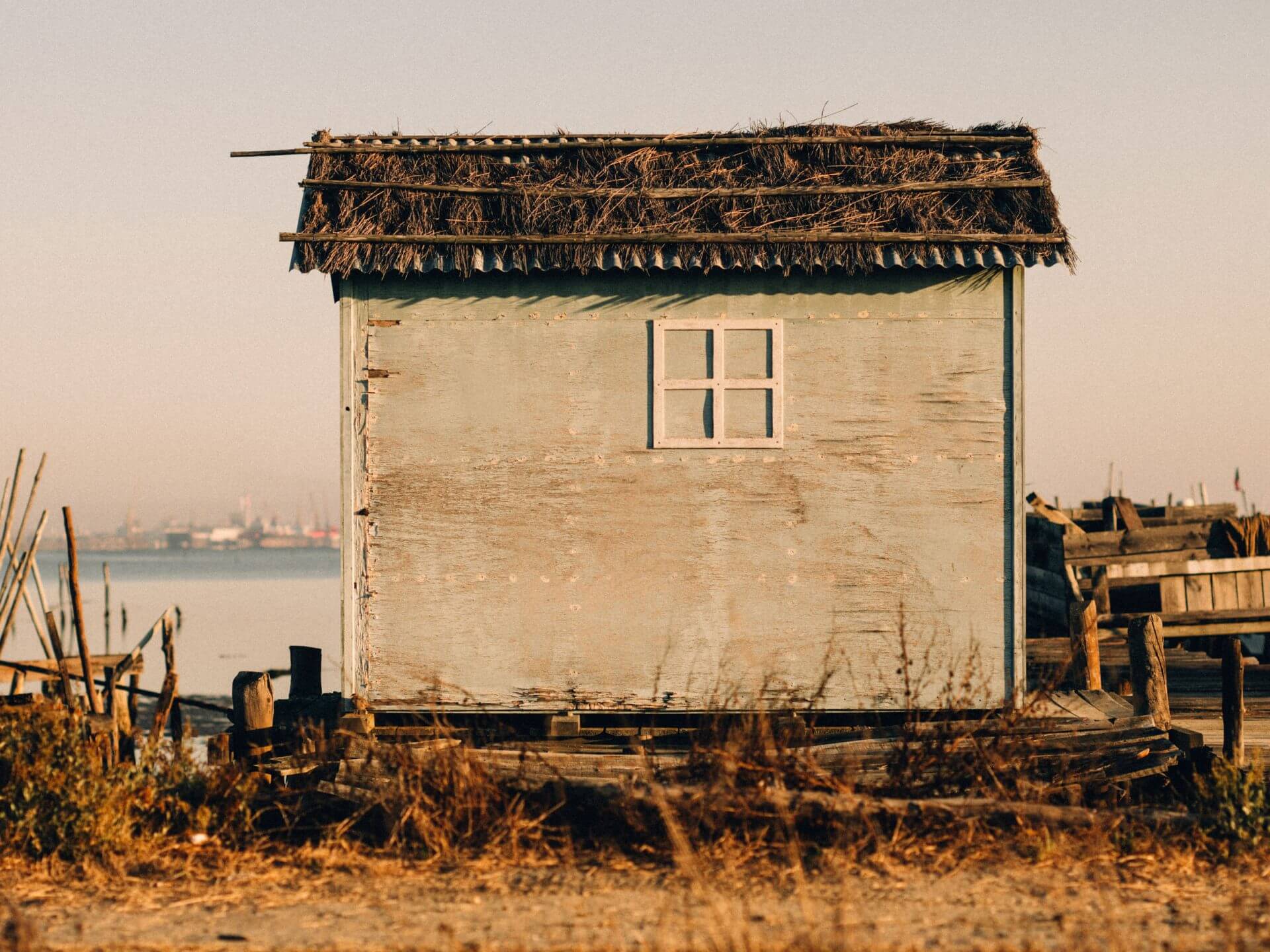
The Fisherman’s Life Is a Free Life
ch. IVThe Fisherman’s Life Is a Free Life
Comporta Coast, Alentejo
ch. IV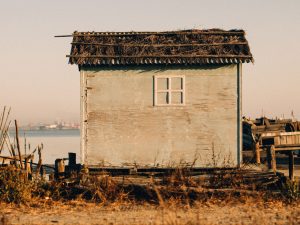 >
>
Particularly Comporta, a string of sleepy fishing villages nestled along the Atlantic Ocean coastline among sloping salt flats and sand dunes, is now dotted with vacation homes, high-end retail, cultural projects and gastronomy characterized by a particular fusion of traditional Alentejan design and Bali-esque boho-chic that’s become known as “Comporta style.”
But we hadn’t come for luxury, at least not by any typical definition of the word. We arrived at rose-tinted dawn to Cais Palafítico da Carrasqueira, a zigzagging stilted wooden pier built by local fishermen in the 1950s and 1960s that’s one of the last of its kind in Europe. There we met Alexandre Custódio Martins Neto, a 64-year-old, third-generation local fisherman with a fantastically vulgar yet kind-hearted sense of humor. He brought us out on his small, hand-painted wooden fishing boat into the Sado Estuary, a biologically rich area of wetlands inhabited by flamingos, herons, white swans and bottlenose dolphins, not to mention the crabs, clams, oysters, bream, bass and sole that Alexandre has spent his life fishing.
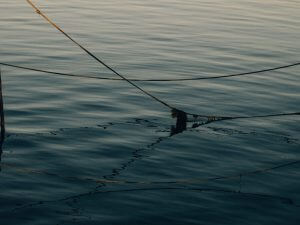
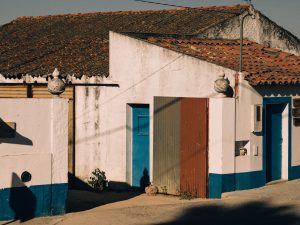
“The fisherman’s life is a free life, an improvised life. You were just born into it and you accept it as it is,” said Alexandre, whose father taught him to fish at the age of 14. “I would fish every day after school,” he added, the moon still setting at his back. “But today there’s much less fish in the water.”
The combination of overfishing and climate change has been depleting the waters for decades, he said. “But in the last three or four years, you can really feel the difference.” Some aquatic species are almost completely gone, like a long eel-like razor clam called a lingueirão that Alexandre grew up fishing, and the local community has had to shift to tourism.
“Fishing is definitely in decline here, and soon enough it’s going to die,” said António Leitão, a Brazilian-born chef who worked in some of the top restaurants of New York, London and Lisbon before giving up a high-profile culinary career to move to Melides, Comporta’s quieter neighboring village, and run a small catering company with his wife. António works with Alexandre and other local fishermen to source more sustainable fish varieties, like certain species of sea bream, cuttlefish and sardines, the fishing of which is now capped by the government. If major changes aren’t made, he added, “in a few years, there probably won’t be any more fishing here.”
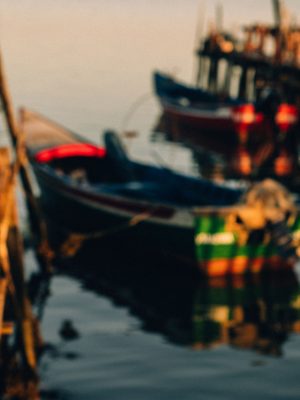
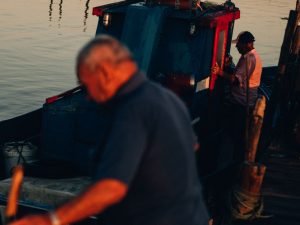
We docked at the pier, golden sunlight now pouring over the moored wooden boats and old thatched-roof fishing huts scattered across the wharf. Bidding goodbye to Alexandre, we joined António for a trip to the fish markets, where he selected sardines and bream caught that morning from big crates strewn across the floor. After the market at Carrasqueira, we headed to the white-washed Comporta village, where well-heeled newer residents cross paths with longstanding locals.
“There's a big contrast between the local people, who don't have that much money, and these super rich people,” said António. In the past this contrast was a subject of significant tension in the area, he added. For decades, much of Comporta was owned by the Espírito Santo family, Portugal’s largest banking dynasty. Though they expanded agriculture and infrastructure, the Espírito Santos were also seen as exploiting the local community, keeping a tight hold on industry and development until the collapse of the banking group in 2014.
But the more recent influx of wealthy foreigners is generally embraced by the locals, said António. “People around here like it because it gives them a lot of business, from the fishermen to the tourist guides to the restaurants.”
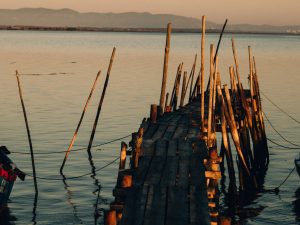
And many of the new arrivals, he said, are coming with the aim of living more sustainably, more slowly, in support of the local community—like António himself, who sources almost all of his ingredients from small local farmers, butchers, fishermen and traditional producers.
“That’s why I came over here,” he said. “To have a more chilled life and to actually work with really great ingredients. I was working in hotels and restaurants where the margins were the most important thing." Each year, he said, more and more people are arriving who are tired of grinding out a career and a lifestyle that they no longer feel good about.
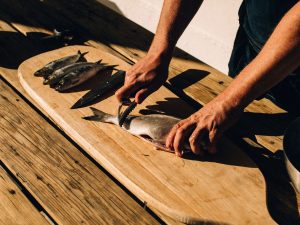
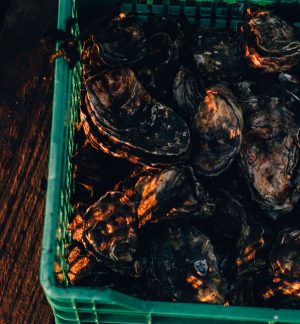
The hills of Alentejo have become a breeding ground for progressive intentional communities aimed at finding better ways of living in harmony with each other and with nature, beginning in 1995 with Tamera Peace Research and Education Center, a pioneering experimental research center and “healing biotope” that now employs and houses hundreds of people. More recent communities, like Permalab, a living laboratory devoted to regenerative and cyclic cohabitation, and the "self-realization center" Mooji, have helped to nurture a true frontier of experimental living where it’s possible to dream of a more ecologically and spiritually sustainable “post-capitalist world.”
“There's definitely a movement now awakening here in Portugal. Our country is ideal for this kind of sustainable living, because of the weather and the landscape,” said António. “There's a shift in mentality. People are realizing that there’s more to life than making money.”
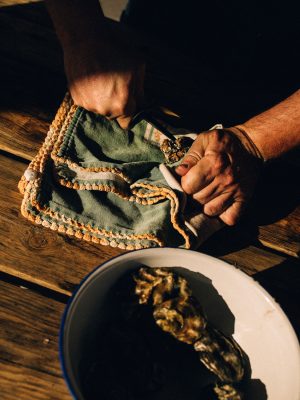

The Fisherman’s Life Is a Free Life
Comporta Coast, Alentejo ch. IVParticularly Comporta, a string of sleepy fishing villages nestled along the Atlantic Ocean coastline among sloping salt flats and sand dunes, is now dotted with vacation homes, high-end retail, cultural projects and gastronomy characterized by a particular fusion of traditional Alentejan design and Bali-esque boho-chic that’s become known as “Comporta style.”
But we hadn’t come for luxury, at least not by any typical definition of the word. We arrived at rose-tinted dawn to Cais Palafítico da Carrasqueira, a zigzagging stilted wooden pier built by local fishermen in the 1950s and 1960s that’s one of the last of its kind in Europe. There we met Alexandre Custódio Martins Neto, a 64-year-old, third-generation local fisherman with a fantastically vulgar yet kind-hearted sense of humor. He brought us out on his small, hand-painted wooden fishing boat into the Sado Estuary, a biologically rich area of wetlands inhabited by flamingos, herons, white swans and bottlenose dolphins, not to mention the crabs, clams, oysters, bream, bass and sole that Alexandre has spent his life fishing.


“The fisherman’s life is a free life, an improvised life. You were just born into it and you accept it as it is,” said Alexandre, whose father taught him to fish at the age of 14. “I would fish every day after school,” he added, the moon still setting at his back. “But today there’s much less fish in the water.”
The combination of overfishing and climate change has been depleting the waters for decades, he said. “But in the last three or four years, you can really feel the difference.” Some aquatic species are almost completely gone, like a long eel-like razor clam called a lingueirão that Alexandre grew up fishing, and the local community has had to shift to tourism.
“Fishing is definitely in decline here, and soon enough it’s going to die,” said António Leitão, a Brazilian-born chef who worked in some of the top restaurants of New York, London and Lisbon before giving up a high-profile culinary career to move to Melides, Comporta’s quieter neighboring village, and run a small catering company with his wife. António works with Alexandre and other local fishermen to source more sustainable fish varieties, like certain species of sea bream, cuttlefish and sardines, the fishing of which is now capped by the government. If major changes aren’t made, he added, “in a few years, there probably won’t be any more fishing here.”


We docked at the pier, golden sunlight now pouring over the moored wooden boats and old thatched-roof fishing huts scattered across the wharf. Bidding goodbye to Alexandre, we joined António for a trip to the fish markets, where he selected sardines and bream caught that morning from big crates strewn across the floor. After the market at Carrasqueira, we headed to the white-washed Comporta village, where well-heeled newer residents cross paths with longstanding locals.
“There's a big contrast between the local people, who don't have that much money, and these super rich people,” said António. In the past this contrast was a subject of significant tension in the area, he added. For decades, much of Comporta was owned by the Espírito Santo family, Portugal’s largest banking dynasty. Though they expanded agriculture and infrastructure, the Espírito Santos were also seen as exploiting the local community, keeping a tight hold on industry and development until the collapse of the banking group in 2014.
But the more recent influx of wealthy foreigners is generally embraced by the locals, said António. “People around here like it because it gives them a lot of business, from the fishermen to the tourist guides to the restaurants.”

And many of the new arrivals, he said, are coming with the aim of living more sustainably, more slowly, in support of the local community—like António himself, who sources almost all of his ingredients from small local farmers, butchers, fishermen and traditional producers.
“That’s why I came over here,” he said. “To have a more chilled life and to actually work with really great ingredients. I was working in hotels and restaurants where the margins were the most important thing." Each year, he said, more and more people are arriving who are tired of grinding out a career and a lifestyle that they no longer feel good about.


The hills of Alentejo have become a breeding ground for progressive intentional communities aimed at finding better ways of living in harmony with each other and with nature, beginning in 1995 with Tamera Peace Research and Education Center, a pioneering experimental research center and “healing biotope” that now employs and houses hundreds of people. More recent communities, like Permalab, a living laboratory devoted to regenerative and cyclic cohabitation, and the "self-realization center" Mooji, have helped to nurture a true frontier of experimental living where it’s possible to dream of a more ecologically and spiritually sustainable “post-capitalist world.”
“There's definitely a movement now awakening here in Portugal. Our country is ideal for this kind of sustainable living, because of the weather and the landscape,” said António. “There's a shift in mentality. People are realizing that there’s more to life than making money.”

10317 Berlin, Germany
